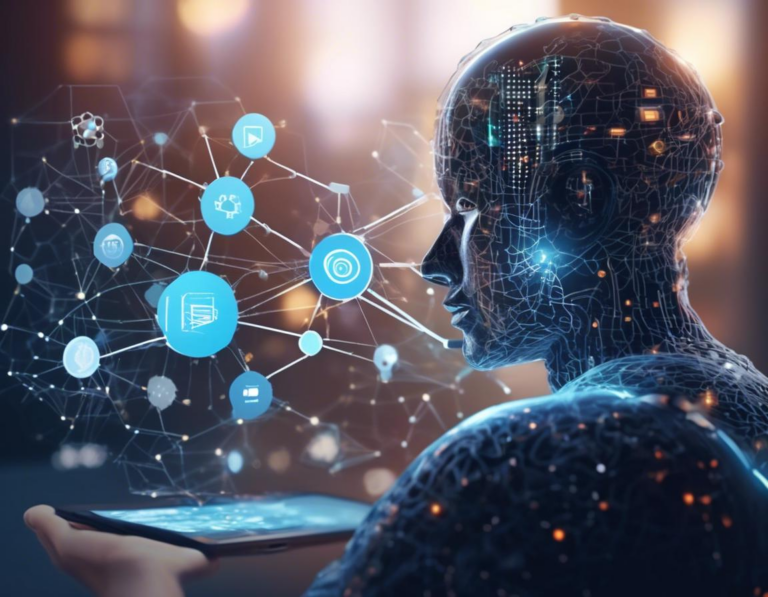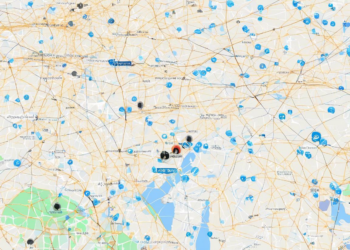Prodigy AI Examples: Real-World Applications and Use Cases

Prodigy AI is revolutionizing industries with its advanced artificial intelligence capabilities. This cutting-edge technology is finding its way into various applications, transforming the way we live, work, and interact with the world. But what exactly are these applications, and how are they impacting our daily lives? Let’s dive into some real-world examples of Prodigy AI in action.
1. Prodigy AI in Healthcare: Revolutionizing Patient Care
Prodigy AI is making significant strides in the healthcare industry, with applications ranging from diagnosis and treatment to drug discovery. Here are some key examples:
- Disease Diagnosis: Prodigy AI can analyze medical images, such as X-rays, CT scans, and MRIs, to assist doctors in diagnosing diseases like cancer and heart disease with greater accuracy and speed. [Link to a study on AI-assisted diagnosis]
- Personalized Treatment Plans: AI algorithms can analyze a patient’s medical history, genetic information, and lifestyle factors to create personalized treatment plans that cater to individual needs. [Link to an article on personalized medicine]
- Drug Discovery: Prodigy AI can accelerate drug discovery by identifying potential drug targets and predicting their effectiveness. This can significantly reduce the time and cost associated with bringing new drugs to market. [Link to a research paper on AI in drug discovery]
2. Prodigy AI in Finance: Optimizing Operations and Preventing Fraud
The financial sector is heavily embracing Prodigy AI to improve efficiency, reduce risk, and enhance customer experiences. Here are some notable applications:
- Fraud Detection: Prodigy AI can analyze vast amounts of financial data to identify patterns and anomalies that may indicate fraudulent activity. This helps banks and financial institutions prevent losses and protect customers. [Link to an article on AI in fraud detection]
- Algorithmic Trading: AI-powered trading algorithms can analyze market data and execute trades at lightning speed, often outperforming human traders. [Link to an article on algorithmic trading]
- Risk Management: Prodigy AI can help financial institutions assess and manage risk by analyzing market trends, customer behavior, and economic indicators. [Link to an article on AI in risk management]
3. Prodigy AI in Education: Personalized Learning Experiences
Prodigy AI is transforming the way we learn, creating more personalized and engaging learning experiences. Here are some examples:
- Adaptive Learning Platforms: AI-powered learning platforms can adapt to each student’s individual learning pace and style, providing customized lessons and exercises. [Link to an example of an adaptive learning platform]
- Automated Grading: AI can automate the grading of assignments and tests, freeing up teachers’ time to focus on providing personalized support to students. [Link to an article on AI in education]
- Virtual Tutors: Prodigy AI can power virtual tutors that can provide personalized guidance and support to students 24/7. [Link to an example of a virtual tutor]
4. Prodigy AI in Manufacturing: Optimizing Production and Efficiency
Prodigy AI is playing a key role in driving efficiency and innovation in the manufacturing sector. Here are some ways AI is being used:
- Predictive Maintenance: AI algorithms can analyze sensor data from machines to predict potential failures and schedule maintenance before breakdowns occur. [Link to an article on predictive maintenance]
- Quality Control: Prodigy AI can analyze images and data from production lines to identify defects and ensure product quality. [Link to an article on AI in quality control]
- Process Optimization: AI can analyze data from manufacturing processes to identify areas for improvement and optimize production efficiency. [Link to an article on AI in process optimization]
5. Prodigy AI in Retail: Enhancing Customer Experience and Sales
Prodigy AI is revolutionizing the retail industry, making shopping more convenient and personalized. Here are some notable applications:
- Personalized Recommendations: AI-powered recommendation engines can analyze customer data and browsing history to suggest products that they are most likely to be interested in. [Link to an article on AI-powered recommendations]
- Chatbots: AI-powered chatbots can provide instant customer support, answer questions, and guide customers through the shopping process. [Link to an example of a chatbot in retail]
- Inventory Management: AI can help retailers optimize inventory levels by analyzing sales data and predicting future demand. [Link to an article on AI in inventory management]
6. Prodigy AI in Transportation: Driving Safety and Efficiency
Prodigy AI is transforming the transportation industry, making it safer, more efficient, and more sustainable. Here are some examples:
- Autonomous Vehicles: AI-powered self-driving cars are becoming increasingly common, promising to reduce accidents and improve traffic flow. [Link to an article on autonomous vehicles]
- Traffic Management: AI can analyze traffic data to optimize traffic flow, reduce congestion, and improve safety. [Link to an article on AI in traffic management]
- Route Optimization: AI can optimize delivery routes for trucks and other vehicles, reducing fuel consumption and emissions. [Link to an article on AI in route optimization]
7. Prodigy AI in Marketing: Targeting the Right Audience
Prodigy AI is changing the way companies market their products and services, making it more effective and targeted. Here are some examples:
- Targeted Advertising: AI can analyze customer data to deliver personalized ads to the right audience at the right time. [Link to an article on AI in targeted advertising]
- Content Marketing: AI can generate content ideas and write copy that is more likely to resonate with target audiences. [Link to an article on AI in content marketing]
- Customer Relationship Management (CRM): AI can analyze customer interactions to identify patterns and predict customer behavior, improving CRM strategies. [Link to an article on AI in CRM]
8. Prodigy AI in Cybersecurity: Protecting Against Threats
Prodigy AI is playing an increasingly important role in cybersecurity, helping to protect against cyberattacks and data breaches. Here are some examples:
- Threat Detection and Prevention: AI can analyze network traffic and other data to detect and prevent cyberattacks in real time. [Link to an article on AI in cybersecurity]
- Incident Response: AI can help security teams respond to incidents more quickly and effectively. [Link to an article on AI in incident response]
- Vulnerability Assessment: AI can be used to identify and assess vulnerabilities in software and systems. [Link to an article on AI in vulnerability assessment]
Conclusion: The Future of Prodigy AI
The applications of Prodigy AI are vast and continue to expand. From healthcare to finance, education to manufacturing, AI is transforming industries and shaping the future. As AI technology continues to evolve, we can expect to see even more innovative and impactful applications of Prodigy AI in the years to come.
By embracing the potential of Prodigy AI, we can unlock new possibilities, drive innovation, and create a better future for all.












